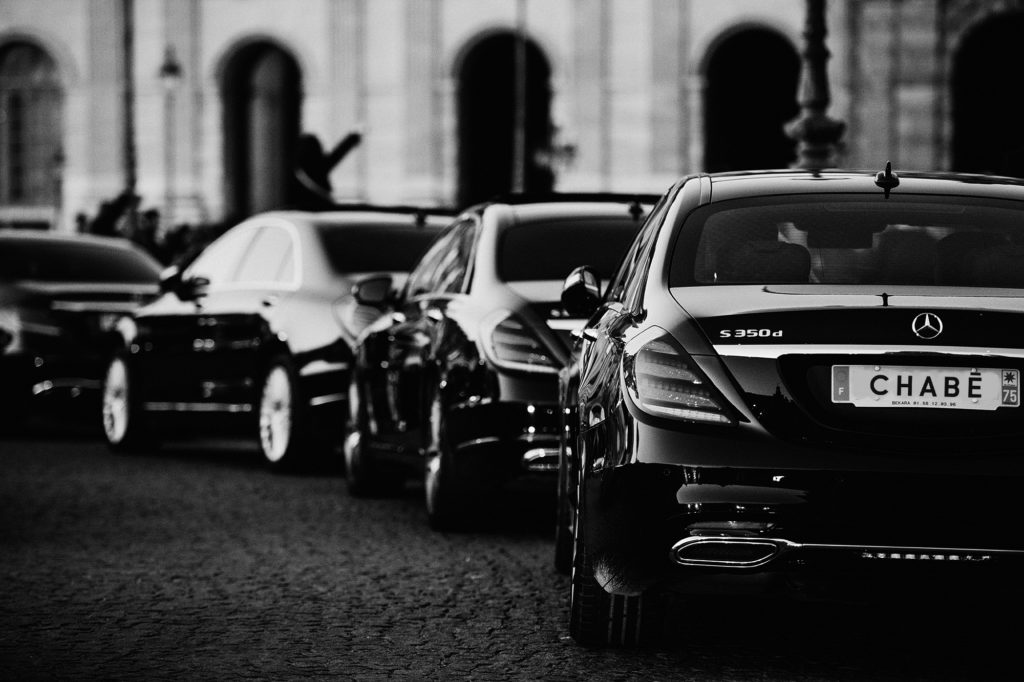
Fashion Week, a veritable institution in the world of fashion, is a major event which brings together the greatest designers, models, celebrities and fashion enthusiasts from all over the world. This effervescent period, when cities are transformed into veritable runways, is a must for lovers of trends and glamour!
With just one week to go before the launch of Men’s Fashion Week in Paris, Chabé takes a look back at the history of Fashion Week, its beginnings, organization and development around the world.
 Fashion Week offers fashion designers a unique platform to showcase their latest creations and inspirations. Designers often work for months to prepare their collections, drawing inspiration from current trends and the cultural elements of their environment. The fashion shows that take place during Fashion Week are grandiose spectacles of creativity and innovation. The runways are filled with models sporting the latest trends, from the most elegant evening gowns to the trendiest casual outfits.
Fashion Week offers fashion designers a unique platform to showcase their latest creations and inspirations. Designers often work for months to prepare their collections, drawing inspiration from current trends and the cultural elements of their environment. The fashion shows that take place during Fashion Week are grandiose spectacles of creativity and innovation. The runways are filled with models sporting the latest trends, from the most elegant evening gowns to the trendiest casual outfits.
Fashion Week is in a state of flux, with the arrival of new technologies and new designers, including the eagerly awaited Louis Vuitton Première Collection by Pharrell Williams…
But first, let’s take a look back at the beginnings of fashion week…
Paris is the capital of fashion and creation, but it wasn’t in this city that Fashion Week was conceived and invented, but in New York!
In the late 19th and early 20th centuries, Charles Worth and Paul Poiret organized a series of sumptuous balls where guests were invited to come dressed in their finest, allowing them to discover their latest creations worn by men and women, an early version of the fashion show.
In 1943, Eleanor Lambert, an influential figure in the fashion industry, launched “Press Week” in New York. This visionary event, held at the Plaza Hotel, brought together only local and national press to promote American fashion and rival the influence of Paris. Press Week laid the foundations for what would become Fashion Week, a concept adopted by cities around the world.
Photo Credit: Vanity Fair
The first official Paris Fashion Week took place in 1973, with the creation of the Fédération Française de la Couture, and the inauguration of a show that would truly revolutionize fashion history!
Dubbed the “Battle of Versailles“, the show, which took place during an event entitled France Amérique, highlighted the tensions between the Paris and New York fashion scenes. To raise funds for the restoration of the Château de Versailles, five French and five American designers presented their collections. On the French side, Yves Saint Laurent, Emanuel Ungaro, Christian Dior (then headed by Marc Bohan), Pierre Cardin and Hubert de Givenchy. On the American side, Anne Klein, Halston, Oscar de la Renta, Bill Blass and Stephen Burrows took to the runway. This historic confrontation not only captivated the public, it also marked a decisive turning point in the recognition of American fashion and helped redefine the boundaries of the international fashion industry.
Each Fashion Week has its own character and signature, reflecting the essence of the city that hosts it. Paris, the fashion capital, is renowned for its timeless elegance and legendary fashion houses. New York, thanks to the vision of Eleanor Lambert, shines with bold, urban style, showcasing promising young talent.
Milan is famous for its sophisticated allure and incomparable craftsmanship. London, cradle of the avant-garde, stands out for its eccentricity and innovative spirit. Other emerging and surprising cities have also joined the movement, bringing a breath of fresh air to the fashion scene. From the runwayss of Berlin, famous for their audacity and diversity, to the runways of São Paulo, which highlight Latin American culture, each Fashion Week offers a unique experience for participants.
Fashion Week is a long, multi-season cycle that recurs several times a year.
First, Haute Couture Week, which takes place exclusively in Paris in January and July. This is an opportunity for the most prestigious fashion houses to showcase their exquisite, bespoke creations.
Then there’s Men’s Fashion Week. Initially centered on Milan, it has expanded to the four major fashion axes and is held just before Haute Couture Week, in January and July. This week highlights the latest trends and creations in men’s fashion.
Finally, we have Ready-to-wear week. This intense month of fashion shows generally takes place in February/March and September/October. It is dedicated to the presentation of ready-to-wear collections, aimed at a wider public.

The choice of show periods can seem out of phase with the seasons. For example, unveiling winter collections in March and summer collections in September may seem odd. However, this is done to enable the factories to produce the necessary pieces and distribute them to the boutiques in good time.
What’s more, by holding several fashion weeks throughout the year, the industry remains dynamic and can respond to the ever-changing expectations of consumers. These events showcase the latest innovations and support emerging talent, while providing a global showcase for the fashion industry. Fashion Weeks also play an essential role in showcasing new creators, designers and trends.
In addition to showcasing the latest fashion trends, Fashion Week is also an important meeting place for those involved in the fashion industry. Fashion designers, buyers, journalists and influencers gather to share ideas and experiences, discuss current trends and exchange ideas on the future of the fashion industry. Exclusive evenings organized during Fashion Week also offer the opportunity to meet personalities from the world of fashion and celebrity.
Finally, Fashion Week is also an opportunity for the fashion industry to focus on important issues related to sustainability and social responsibility. Fashion designers are increasingly aware of their impact on the environment and society, and are looking to adopt sustainable practices to reduce their ecological and social footprint. Fashion Week therefore offers a unique opportunity for fashion designers to present sustainable and responsible collections, and to raise public awareness of sustainability issues in the fashion industry.

Fashion Week is an essential event for the fashion industry. It gives fashion designers the opportunity to showcase their latest creations, industry players the chance to meet and share ideas, and raise public awareness of sustainability issues in the fashion industry.
It’s a global showcase where trends are created and reinvented. In this effervescent whirlwind, Chabé positions itself as the trusted partner for luxury transportation services at Fashion Weeks. Thanks to its expertise and dedication to offering bespoke solutions, Chabé ensures smooth, comfortable and discreet travel for the industry’s key players, contributing to the success of these prestigious events.